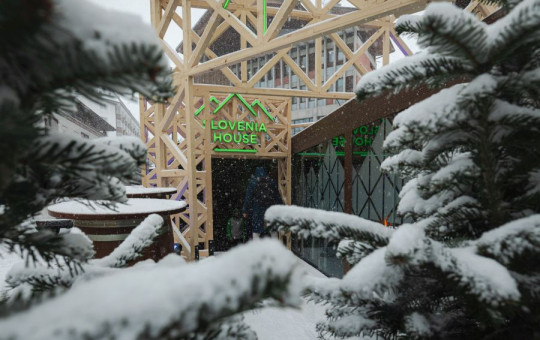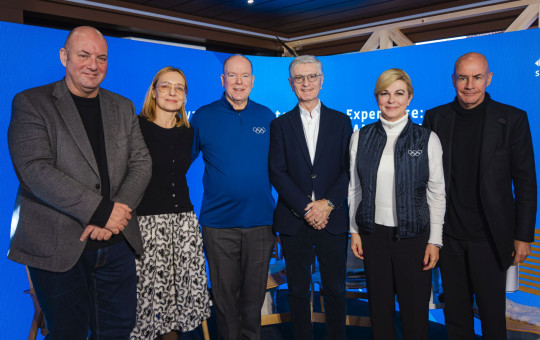Date: 7. May 2024
Time to read: 3 min
On 9 May, Europe celebrates its day to commemorate the start of the European integration process. This year's celebrations in Slovenia will mark 20 years of EU membership, as well as the upcoming elections of Members of the European Parliament.
Europe Day: central ceremony to mark the anniversary of Slovenia's accession
Europe Day is usually marked by a series of events where citizens can learn more about how the Union works and the benefits of membership. This year, the celebration coincides with the 20th anniversary of the great enlargement.
-
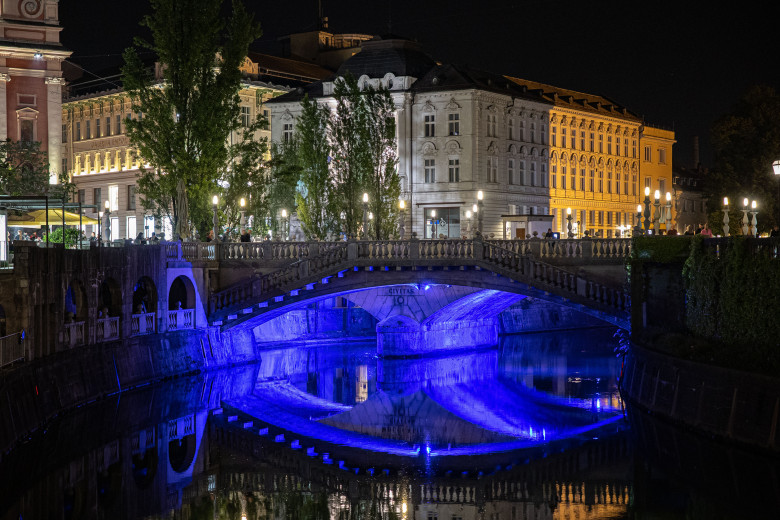 The Tromostovje in the colours of the European flag on the 20th anniversary of Slovenia's accession to the European Union. Photo: Katja Kodba/STA
The Tromostovje in the colours of the European flag on the 20th anniversary of Slovenia's accession to the European Union. Photo: Katja Kodba/STA
-
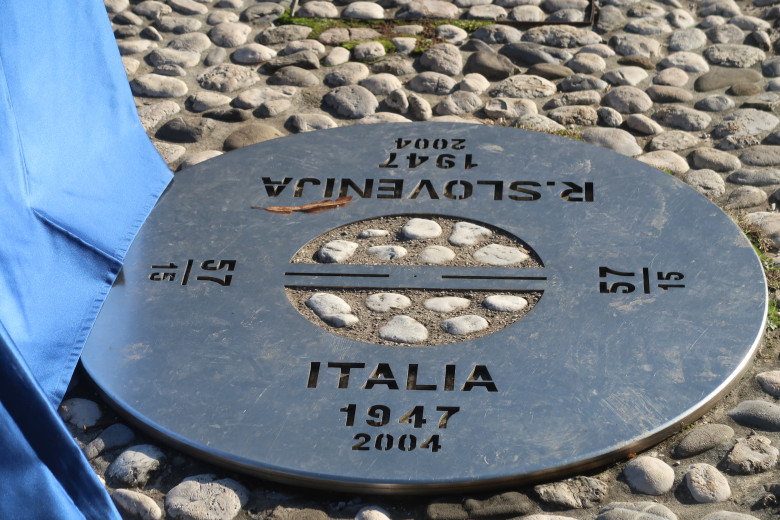 The renovation of Europe Square is considered one of the central interventions of the so-called ECOC District, which will be the main venue of the ECOC 2025 Nova Gorica - Gorizia. Photo: Rosana Rijavec/STA
The renovation of Europe Square is considered one of the central interventions of the so-called ECOC District, which will be the main venue of the ECOC 2025 Nova Gorica - Gorizia. Photo: Rosana Rijavec/STA
In Slovenia, the main celebration of the anniversary will take place on the evening of 9 May at Europe Square in Nova Gorica, where 20 years ago, the then Prime Minister Anton Rop and the then President of the European Commission Romano Prodi counted down the seconds until Slovenia's accession to the EU. This year, the keynote speakers will be Prime Minister Robert Golob and European Commissioner Janez Lenarčič.
The programme of the celebration will touch upon the times when the idea of uniting European nations under one flag was born and will recall the many opportunities that the country and individuals have been given as a result of joining the EU.
Written and directed by Neda R. Bric, the many performers will include Vlado Kreslin and world-renowned pianist Alexander Gadjiev.
The events in Nova Gorica will take place throughout the day, including a discussion between Foreign Minister Tanja Fajon and former MEPs - Borut Pahor, Jelko Kacin and Romana Jordan - as well as former and current Commissioners Janez Potočnik and Janez Lenarčič.
There will also be a number of events in other parts of Slovenia.
-
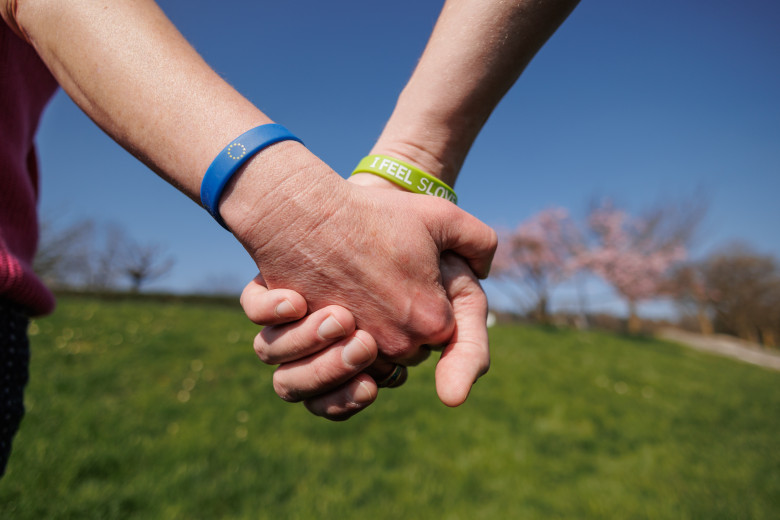 In 1995, the Schengen Agreement on the abolition of internal border controls between Member States was concluded, and in 2002 the euro, the common European currency, was introduced. Photo: Nebojša Tejić/STA
In 1995, the Schengen Agreement on the abolition of internal border controls between Member States was concluded, and in 2002 the euro, the common European currency, was introduced. Photo: Nebojša Tejić/STA
-
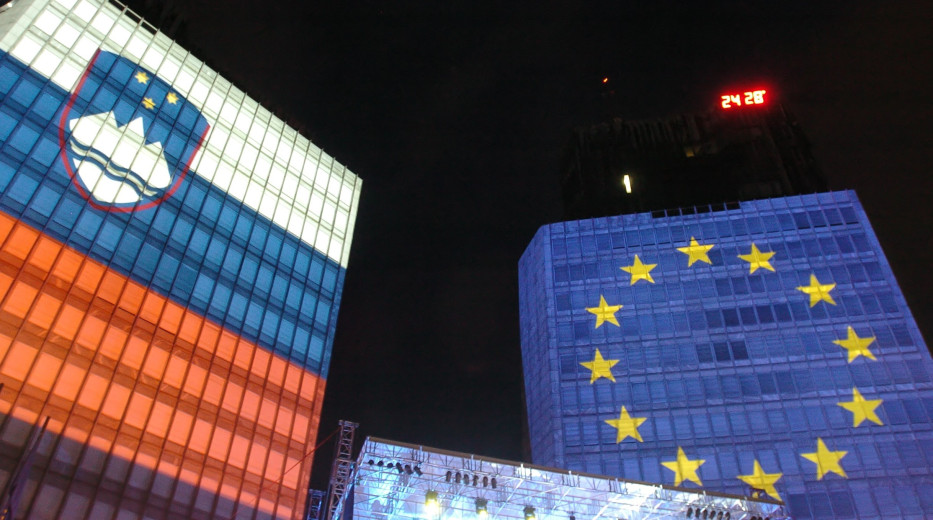 Over the decades, cooperation has expanded from the economic to other areas, and in 1993 the Maastricht Treaty gave the Union its name, creating an internal market with four freedoms - the free movement of people, goods, services and money. Photo: Archives Ukom
Over the decades, cooperation has expanded from the economic to other areas, and in 1993 the Maastricht Treaty gave the Union its name, creating an internal market with four freedoms - the free movement of people, goods, services and money. Photo: Archives Ukom
Campaigning for the European elections officially launches on Europe Day
This year's Europe Day will also mark the upcoming European Parliament elections. In Slovenia, the official campaign for the elections on 9 June will start on 9 May.
The European Parliament is the only directly elected institution of the EU whose role and power have grown considerably over the decades. In the new Parliament, Slovenia will have nine MEPs, one more than before.
Although Slovenians voted by more than 90% in a referendum in 2003 in favour of EU membership, and support for membership remains among the highest in the EU today, turnout in Slovenia's European elections is among the lowest. In the last elections in 2019, it was just under 29%.

